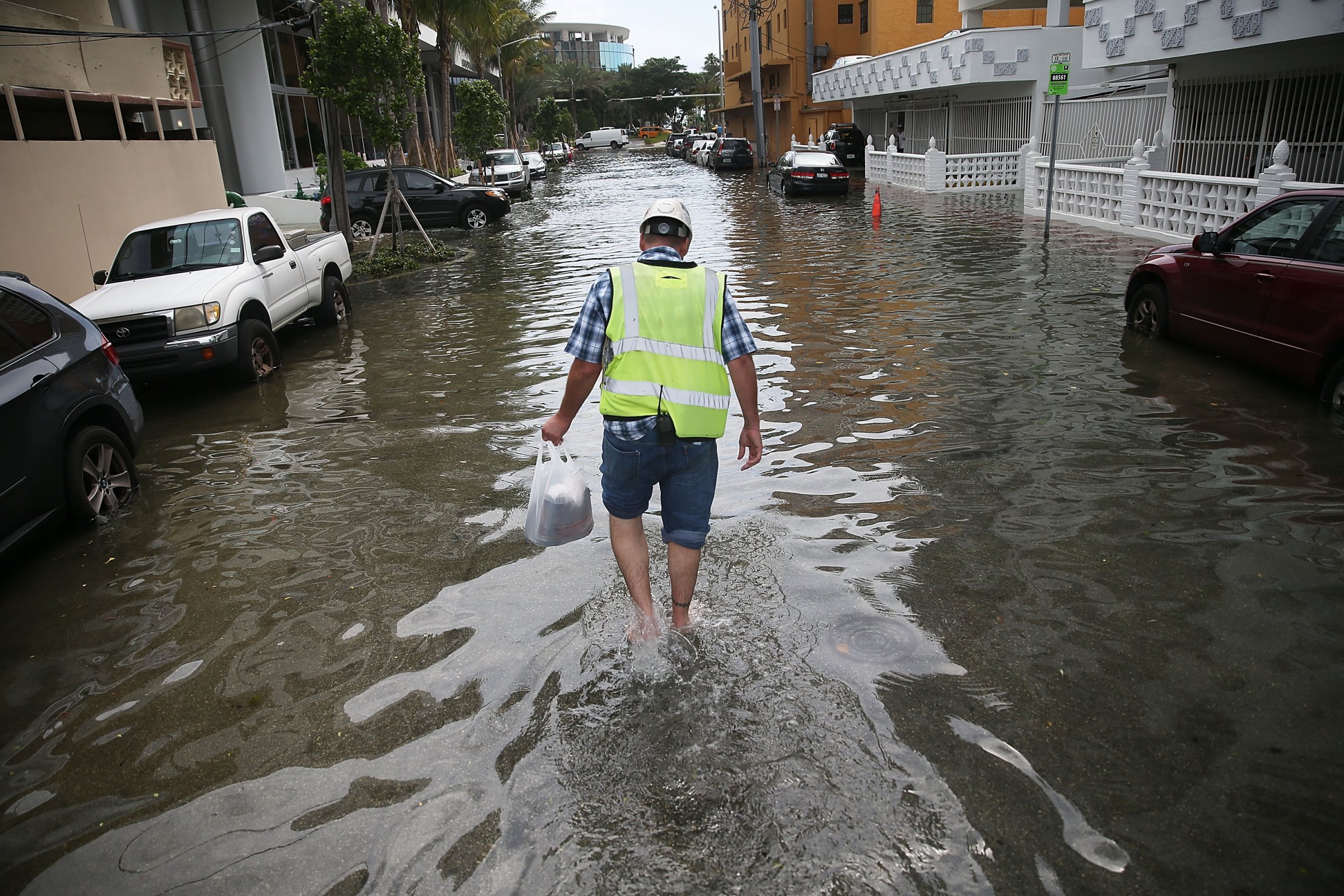
Sea levels rose faster in the 1900s than in any of time over the previous 2,800 years, and will continue to rise at record rates without drastic cuts to carbon emissions, according to new research published in the journal PNAS.
Average sea levels around the world rose by 5.5 inches (14 cm) in the 20th century. That’s substantially higher than the maximum 2.8 inches (7 cm) that would have been expected without warming from manmade climate change.
The research adds to growing evidence that communities around the world are vastly unprepared to defend against the effects of sea level rise in the coming decades. Rising sea levels erode coasts and place coastal cities in danger. Even areas that may seem safe will be vulnerable to floods that could inundate entire cities and contaminate freshwater supplies.
“We’re living in a very unusual time that we have not experience for at least the last 2,800 years,” says study co-author Benjamin Horton, a professor at Rutgers University.
Another study released this week that relies on data from the PNAS paper shows just how much humans contributed to the COMING flooding and the other consequences of sea level rise. More than 90% of flood days in the last decade would not have occurred without human contributions to global warming in several key flood-prone regions including Florida’s Atlantic coast and cities along the west coast of the U.S., according to the research published by the group Climate Central.
“We’re just at the beginning of the curve,” says Benjamin Strauss, co-author of the Climate Central central study. “I think in the next two decades things will deteriorate a lot faster than they did over the last two decades.”

Despite warnings from Strauss and others, researchers say that cuts could still save coastal cities and habitats across the globe. Sea levels will rise by a much 4.3 feet (1.3 m) by 2100 if humans continue to emit at current rates. That figure could be reduced to as low as 0.8 feet (0.24 m) if humans peak and then reduce carbon emissions in the coming decades.
Achieving such reductions won’t be an easy feat. Countries from around the world agreed in Paris last December to try to keep average global temperatures from rising more than 3.6°F (2°C) by 2100. Even if that goal is achieved—some are rightfully skeptical—sea levels are still expected to rise far beyond 0.8 ft (0.24 m). That could erase low-lying island countries like Kiribati and affect coastal cities on the Atlantic coast of the United States.
“If we cut carbon emissions aggressively, we can save a lot of cities in the United States and globally,” says Strauss, who serves as vice president for sea level and climate impacts at Climate Central. “But, even if we do our best, there are some places we probably won’t be able to protect.”
In addition to mitigation, vulnerable communities should adapt to protect themselves from rising sea levels, researchers say. Those protective measures can take the form of levees, pumps and elevated homes. In other places, policymakers have built up natural defenses like mangroves and reefs. These provide the added benefit of sucking up carbon from the atmosphere and they often cost less than their steel and concrete equivalents, according to Jane Carter Ingram of the Science for Nature and People Partnership.
But many of the most vulnerable communities have been reluctant to change. Policymakers in Florida, for instance, have been hampered by elected officials who question the science of climate change despite the state being among the country’s most vulnerable.
“Southeast Florida is really ground zero on climate change and sea level rise in particular,” Christina DeConcini, director of government affairs at the World Resources Institute, said last year. “There’s a disconnect there. It seems if you were an elected official in the state of Florida, it would be incumbent on you to protect your constituents.”
More Must-Reads from TIME
- Cybersecurity Experts Are Sounding the Alarm on DOGE
- Meet the 2025 Women of the Year
- The Harsh Truth About Disability Inclusion
- Why Do More Young Adults Have Cancer?
- Colman Domingo Leads With Radical Love
- How to Get Better at Doing Things Alone
- Michelle Zauner Stares Down the Darkness
Write to Justin Worland at justin.worland@time.com